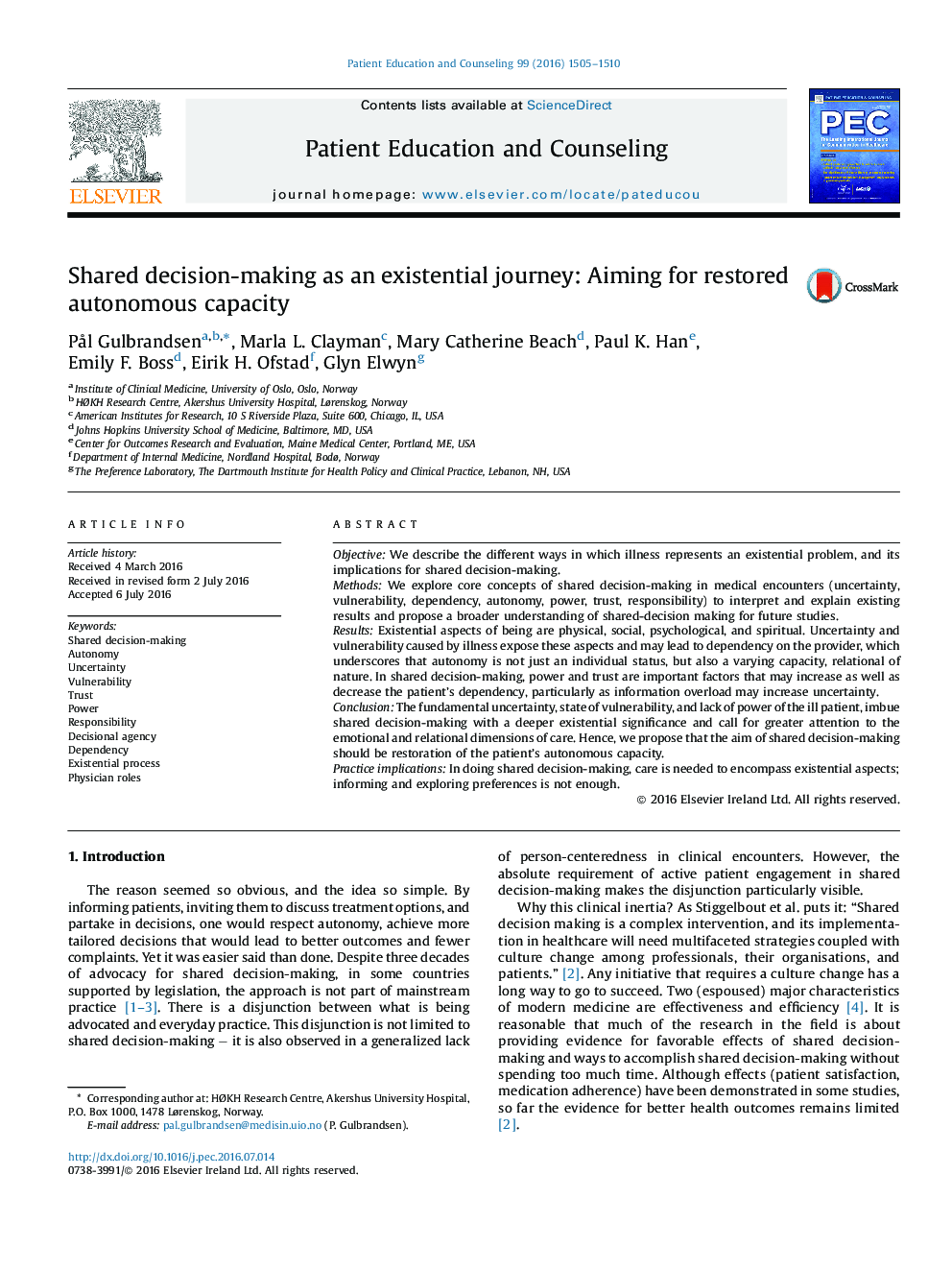| Article ID | Journal | Published Year | Pages | File Type |
|---|---|---|---|---|
| 3813151 | Patient Education and Counseling | 2016 | 6 Pages |
•Becoming ill is an existential process with implications for shared decision-making.•Autonomy is relational and not just a status, but a varying capacity.•Shared decision-making should aim to restore patients' autonomous capacity.
ObjectiveWe describe the different ways in which illness represents an existential problem, and its implications for shared decision-making.MethodsWe explore core concepts of shared decision-making in medical encounters (uncertainty, vulnerability, dependency, autonomy, power, trust, responsibility) to interpret and explain existing results and propose a broader understanding of shared-decision making for future studies.ResultsExistential aspects of being are physical, social, psychological, and spiritual. Uncertainty and vulnerability caused by illness expose these aspects and may lead to dependency on the provider, which underscores that autonomy is not just an individual status, but also a varying capacity, relational of nature. In shared decision-making, power and trust are important factors that may increase as well as decrease the patient’s dependency, particularly as information overload may increase uncertainty.ConclusionThe fundamental uncertainty, state of vulnerability, and lack of power of the ill patient, imbue shared decision-making with a deeper existential significance and call for greater attention to the emotional and relational dimensions of care. Hence, we propose that the aim of shared decision-making should be restoration of the patient’s autonomous capacity.Practice implicationsIn doing shared decision-making, care is needed to encompass existential aspects; informing and exploring preferences is not enough.
